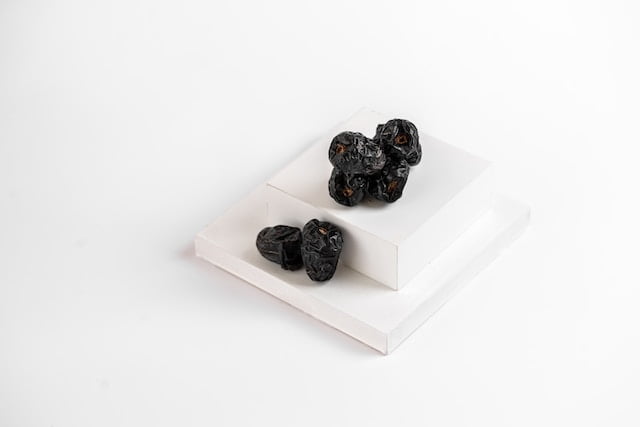Introduction
In today’s fast-paced world, maintaining a healthy lifestyle has become a priority for many. As people become more health-conscious, they seek natural remedies to address various health concerns. One such superfood that has gained immense popularity for its numerous health benefits is Ajwa dates. These delicious, dark-colored fruits not only satisfy the taste buds but also offer a plethora of nutritional advantages. In this blog, we will explore the wonders of Ajwa dates, their history, cultivation, and most importantly, their health benefits.
What are Ajwa Dates?
Ajwa dates, scientifically known as Phoenix dactylifera, are a variety of dates that hail from the city of Madinah, located in the Kingdom of Saudi Arabia. These small, oval-shaped dates are dark brown to black in color and possess a distinct sweet flavor with a hint of caramel. Known as the “King of Dates,” Ajwa dates have a rich cultural significance and are revered in Islamic traditions for their numerous health benefits.
A Historical Gem
The history of Ajwa dates traces back thousands of years. The date palm tree, from which Ajwa dates grow, has been cultivated in the Middle East since ancient times. The date fruit holds significant importance in religious texts and historical records. In Islamic traditions, the Ajwa date is mentioned as having healing properties and is often referred to as the “date of paradise.”
Cultivation and Harvesting
The cultivation of Ajwa dates requires a hot and arid climate, making the Arabian Peninsula an ideal location for their growth. These trees thrive in sandy soils and are resistant to harsh environmental conditions, which is why they are commonly found in the desert regions of Saudi Arabia.
Ajwa dates are carefully hand-picked during the harvest season to ensure their quality. The traditional methods of cultivation and harvesting have been passed down through generations, preserving the authentic taste and nutritional value of these dates.
Nutritional Value
Ajwa dates boast an impressive nutritional profile, making them an excellent addition to a balanced diet. These nutrient-packed fruits are a rich source of natural sugars, essential vitamins, minerals, and dietary fiber. A 100-gram serving of Ajwa dates contains approximately:
- Calories: 277
- Carbohydrates: 65 grams
- Dietary Fiber: 7 grams
- Protein: 1.8 grams
- Fat: 0.2 grams
- Iron: 1.0 mg
- Potassium: 658 mg
- Magnesium: 63 mg
- Vitamin B6: 0.2 mg
- Vitamin K: 2.7 mcg
Health Benefits of Ajwa Dates
- Digestive Health: The dietary fiber in Ajwa dates promotes healthy digestion, prevents constipation, and aids in smooth bowel movements.
- Heart Health: The potassium content in Ajwa dates helps regulate blood pressure, reducing the risk of cardiovascular diseases.
- Bone Strength: Ajwa dates are rich in essential minerals like calcium and magnesium, which contribute to maintaining strong bones and preventing osteoporosis.
- Energy Boost: With their natural sugars and carbohydrates, Ajwa dates serve as an excellent energy booster, especially during physical activities and fasting periods.
- Antioxidant Properties: These dates are packed with antioxidants that combat free radicals, reducing oxidative stress and lowering the risk of chronic diseases.
- Immune System Support: Ajwa dates contain vitamins and minerals that enhance the immune system, protecting the body from infections and illnesses.
- Anemia Prevention: The iron content in Ajwa dates helps prevent iron deficiency anemia and contributes to improved blood circulation.
Ajwa Dates and Ramadan
During the Islamic holy month of Ramadan, Ajwa dates hold special significance as they are traditionally consumed to break the fast. These nutrient-dense fruits provide an immediate source of energy after a day of fasting and help restore glucose levels in the body. The combination of Ajwa dates and water is believed to provide a perfect balance of hydration and nutrition during Ramadan.
Caution and Allergies
While Ajwa dates offer a wide range of health benefits, it’s essential to consume them in moderation, as they are calorie-dense. Individuals with diabetes should be cautious about their consumption due to the natural sugars present in the fruit.
Moreover, as with any food, some people may experience allergies to Ajwa dates. If you notice any adverse reactions after consumption, such as itching, rash, or difficulty breathing, it’s crucial to seek medical attention immediately.
Incorporating Ajwa Dates Into Your Diet
There are numerous delicious ways to incorporate Ajwa dates into your daily diet. You can enjoy them as a standalone snack, add them to smoothies for a natural sweetener, or use them in baking to replace refined sugars. Their unique flavor pairs well with a variety of dishes, both sweet and savory.
Conclusion
In conclusion, Ajwa dates are truly a nutritional powerhouse with a rich history and cultural significance. These delectable fruits offer numerous health benefits, making them an ideal addition to a balanced diet. Whether you consume them during Ramadan, as an energy-boosting snack, or as part of your culinary creations, Ajwa dates can play a vital role in enhancing your overall well-being. Embrace the wonders of Ajwa dates and unlock the treasure trove of health benefits they have to offer!

